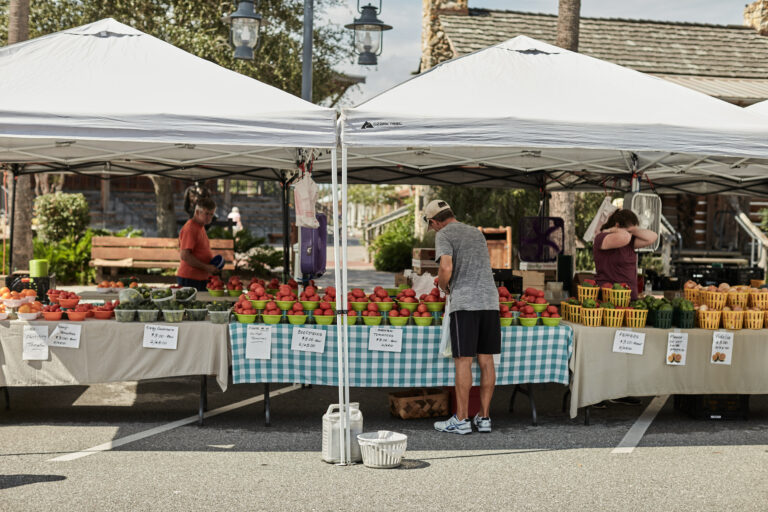I love farmers markets, but sometimes wonder about the safety of the foods. How can I be sure I’m keeping my family safe?
The short answer: A few general guidelines can help …
The explanation: With late summer through early fall being prime harvest season in many areas of the U.S., farmers markets can be a great place to pick up fresh produce. But because much of the food at farmers markets is not subject to the same screening as that from a grocer, it is wise to take some steps on your own to help ensure your purchases are safe as well as tasty.
Planning your trip
- Try to shop in the early morning when it is coolest, and produce hasn’t been subject to high temperatures. Be especially wary if temperatures exceed 90°F, as perishable foods can become unsafe within a single hour, if not kept cool.
- Take along your insulated bags with an ice pack to help keep your purchases safe while you shop and on the trip home.
At the market
- Carefully examine the fruits and vegetables, looking for wet or slimy leaves, mold, off smells, color changes, bruises, and other damages which can be an indication that the produce is past its prime or harboring bacteria.
- If you are purchasing pre-cut or peeled produce, be sure they are being kept refrigerated or stored on ice.
- If you are buying foods that are extremely perishable, such as eggs, cheese and meat, purchase these last and carry them in an insulated cooler bag, keeping them separate from the produce.
- Baked goods and bulk items should be covered to protect them from bugs, dirt, and other contaminants.
- Sellers should use single-use gloves or tools (e.g., tongs, spatula, deli paper) when handling unwrapped products.
- Talk with the farmers and sellers! Most will be happy to chat with you, detailing how they grow, store, and prep their foods for market, and letting you in on what’s good this week – and what will likely be available in upcoming weeks.
- If you don’t know what something is, ask! Again, most farmers are happy to talk about their products and the best ways to prepare, cook, or eat a food.
Back home
- Rinse all produce thoroughly with running water before peeling, cutting, cooking, or eating.
- Refrigerate the produce, particularly pre-cut or peeled, and those which are more perishable (e.g., strawberries, lettuce, herbs, etc.)
- Enjoy your fresh produce!
For more information, visit the sources of this article (USDA, Johns Hopkins, Michigan HHS, NC State Extension) or contact TAG.
TAG can simplify your food safety and quality practices.





